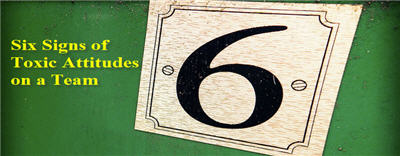“There’s only one thing more contagious than a good attitude – and that’s a bad attitude.”
John Maxwell
I just got off the phone with a key leader in a large organization. He was reflecting on a team within his organization and expressed how each individual, though good-natured, were the worst gripers and complainers whenever they got together. I have experienced the same thing on some teams in some organizations. My first job out of college was as a teacher of Social Studies in a Junior High School. The teacher in the room next to mine was constantly complaining about everything and criticizing every person. Even as a twenty-one-year-old young man, my mind always wondered…why don’t they find another job! I am so glad I had the wisdom, even as a young man, not to allow their attitude to rub off on me.
I have always elevated the value of “attitudes” both personally and as a leader. How do you identify the seeds of a bad attitude? Here are a few examples.
- An inability to admit wrongdoing. Everyone makes mistakes and the person who cannot acknowledge their mistakes has the wrong attitude…. whether they will admit it or not.
- Failing to forgive. People hold grudges assuming they are doing harm to the other party when in reality they are primarily poisoning their own spirit.
- Petty Jealousy. When people succeed, do well, are promoted, or win, they should be celebrated and applauded. The person who cannot celebrate has a real attitude problem.
- Self-Centeredness. When an individual believes that the world revolves around them they are displaying a level of immaturity that will only hinder those around them and the mission of the organization.
- A critical spirit. Criticism is not a gift or an asset. While there is a place for evaluation and critique there is no place for constant criticism. Be the solution and not the problem or the person who only focuses on the problems.
- Failure to share credit. While individuals can accomplish much, most significant accomplishments in an organization are the result of many team members working together.
Your attitude matters more than your actual competence. A person with a good attitude can be “coached up” and develop enough skills to get the job done in most cases. A person with competence who possesses a bad attitude can be like cancer to the whole organization. Put several people together and they can totally sabotage the mission. Don’t have a bad attitude. It is a choice. Don’t tolerate bad attitudes if you are in leadership. Failure to address inappropriate attitudes will prevent you from maximizing your leadership.
Some portions adapted from chapter eight of The 17 Indisputable Laws of Leadership by John C. Maxwell.

